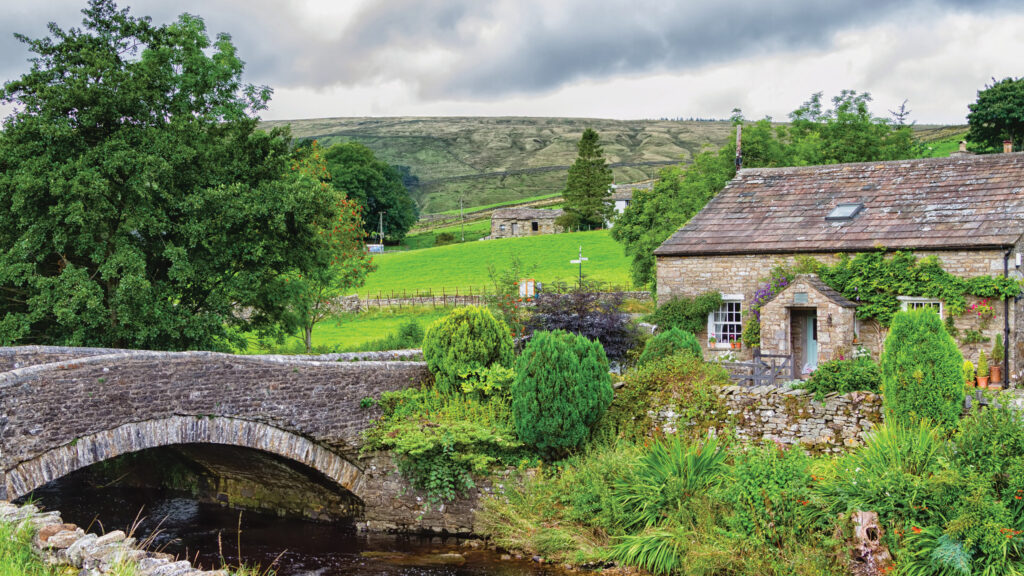Why holiday lets must show super service to have IHT relief potential
 © Adobe Stock
© Adobe Stock Farmers with holiday lets are being warned to closely examine their business structure to give themselves the best chance of eligibility for a key tax relief.
The warning from advisers comes after a further furnished holiday let (FHL) claim for business property relief (BPR) from inheritance tax (IHT) was denied by the first-tier tribunal tax chamber last month.
See also: VAT and diversification – beware the pitfalls
BPR claims are tested as to whether they are trading or investment ventures.
The more genuine services offered and performed for customers, the more likely that a claim will succeed in establishing that a trade was being carried on, but it is a relatively high bar and each case is treated on its merits.
What is the first-tier tribunal tax chamber?
The first-tier tribunal tax chamber is part of the court and tribunals judicial system. It handles appeals against some decisions made by HMRC relating to income tax, PAYE tax, corporation tax, capital gains tax, national insurance contributions, statutory sick pay, statutory maternity pay, inheritance tax, VAT, excise duty and customs duty.
Tanner case
The latest decision involved a claim by the executors of Gertrud Tanner, who had five holiday properties near Whitby in North Yorkshire, employing one full-time staff member and up to eight part-timers.
The accommodation was furnished and decorated to a high standard. In support of the trading argument, as in other cases of this type, it was claimed by Ms Tanner’s executors that what was provided in terms of service went beyond the mere provision of accommodation.
This included housekeeping, property maintenance and gardening, a welcome basket, tourism information, an out-of-hours service and hospitality.
The properties had what would be expected including full kitchens, laundry and in some cases games and leisure facilities, also telephones that could receive incoming calls and make emergency calls.
Investment business finding
“We find that this business viewed as a whole is mainly one of holding investments,” said the judgement.
“Whilst it may operate to a high standard and is clearly a well-managed business, when the entire business is considered in the round we find that the non-investment activities involved are not sufficient for it to fall on the non-investment side of the line.”
Julie Butler, founder of Hampshire based accountant Butler & Co, thinks the taxpayer should have won this case.
“This was a proper business in anybody’s book, it shouldn’t have failed,” she says.
However, she advises that there are more challenges by HMRC to these claims. This demonstrates the need to think carefully about adding on facilities and services to show that farm holidays and some other diversification ventures are much more than a basic offering.
“In marketing on your website you need to stress the services offered, so that the holiday is an experience and the accommodation is just a part of that. You need to do a bit extra and that must be substantial,” says Julie.
Services which are part of a trading holiday operation can include, but are not limited to, providing very good welcome packs, a “meet and greet” service, cleaning, being on call for problems and making food and refreshment available such as breakfast, says Julie.
While it is not appropriate always to accept dogs in holiday accommodation, this is increasingly in demand and the provision of a secure dog walking area is an example of an additional service.
“Farm tours would be something you could add on, or some sort of experience of farming life and routines.”
An end of stay questionnaire including the services could also help demonstrate that these were offered and taken up, says Julie.
Long timeframe for contested IHT relief claims
Gertrud Tanner died on 17 September 2017. HMRC rejected her executors’ business property relief claim in November 2020.
The executors’ appeal against that decision was heard by the first-tier tribunal tax chamber (FTT) between 26 February and 1 March 2024. The judgement on that appeal was handed down on 12 March 2025. A right to appeal was granted.
There has been a number of other significant cases in which furnished holiday let and other businesses claimed business property relief.
In the Graham case the FTT decided that in addition to the accommodation, the services and “personal care lavished upon guests” by Ms Graham was considered to form part of what distinguished the business as trading.
That business provided a heated pool, a sauna, a games room and (for an additional charge) bicycles for guests. Bed and breakfast accommodation was also available.
Communal barbecues were laid on and the guests could pick and use garden produce. Ms Graham died in November 2012, the final judgement date was April 2018.
Another case which went in favour of the taxpayer, the Vigne case, concerned a livery business in which the services included a daily check on the general health of each horse, worming products being provided and administered, the provision of winter feed and removal of muck from the fields.
Ms Vigne died in May 2012, the final decision in the case was delivered in October 2018.
However, the taxpayer lost in the Pawson case, in which the executors of Mrs Pawson challenged HMRC’s initial assessment that her 25% share in a bungalow used as a holiday let would not attract BPR.
The FTT agreed with the executors, but HMRC challenged that in the Upper Tribunal and won in 2013. The taxpayers in this instance were refused leave to appeal to the Court of Appeal.
Mrs Pawson died in June 2006, with the final decision in the case given in January 2012.
